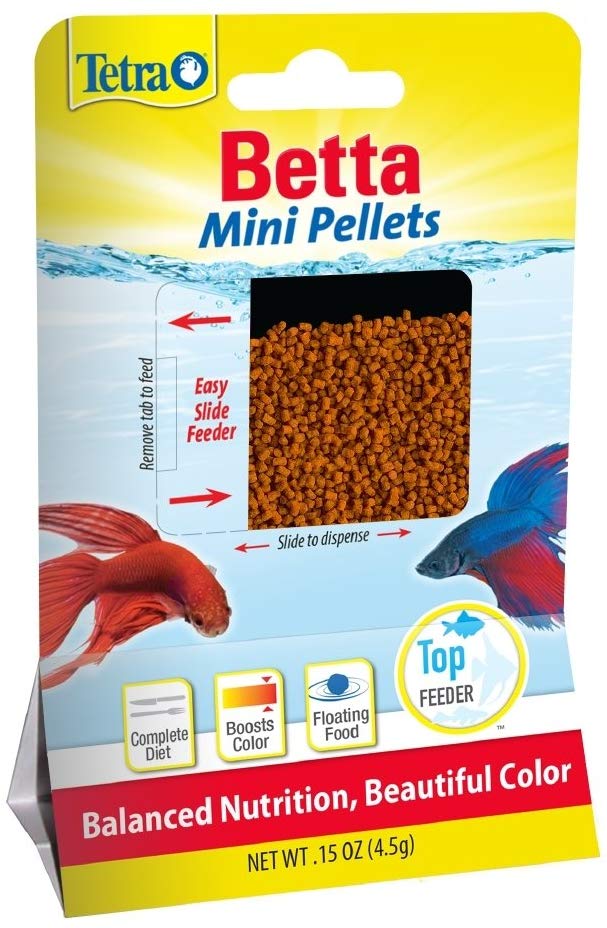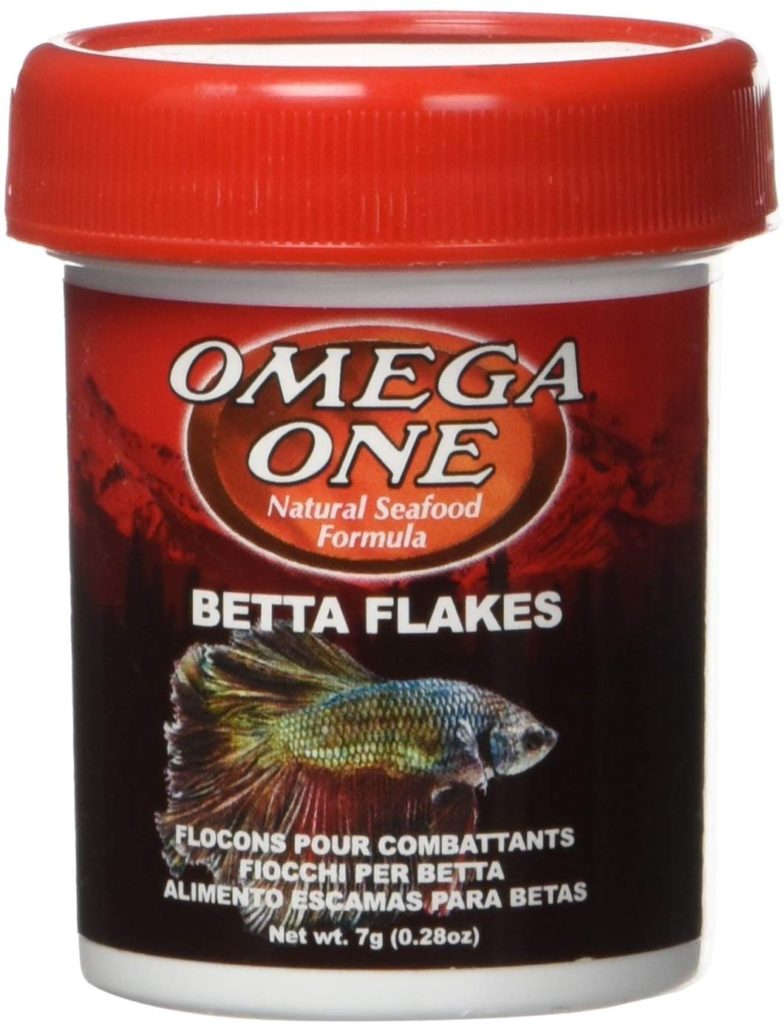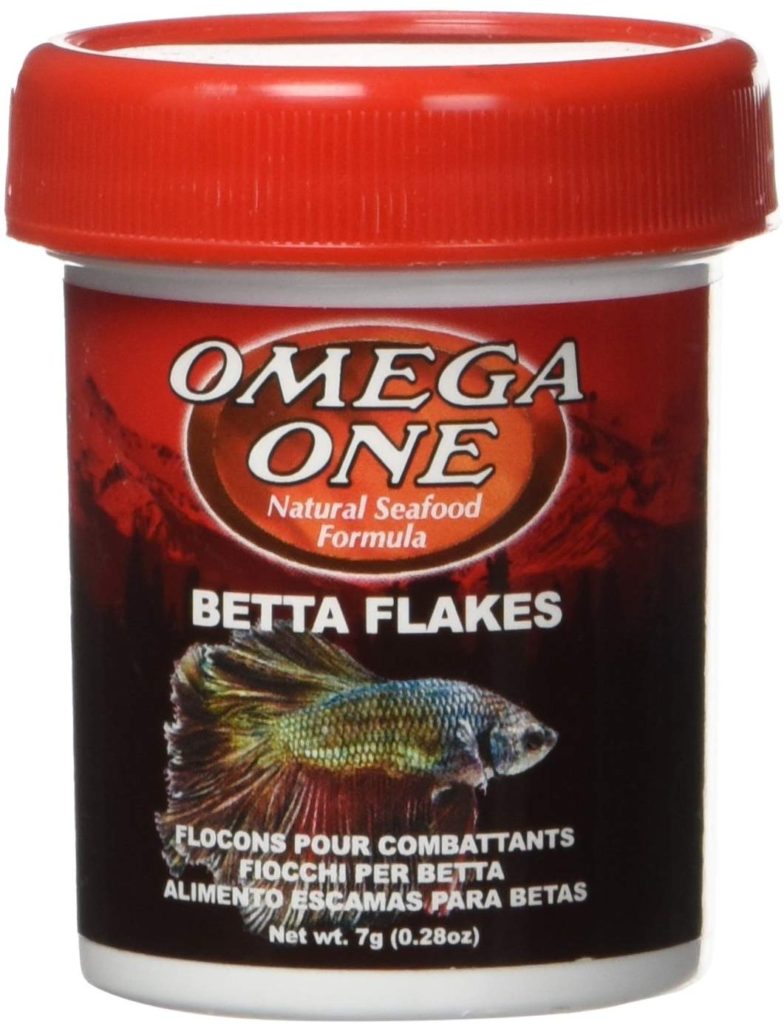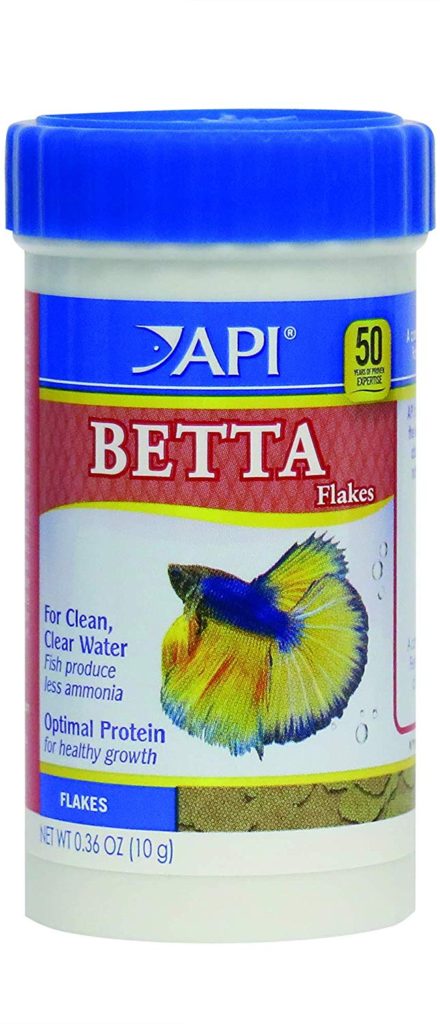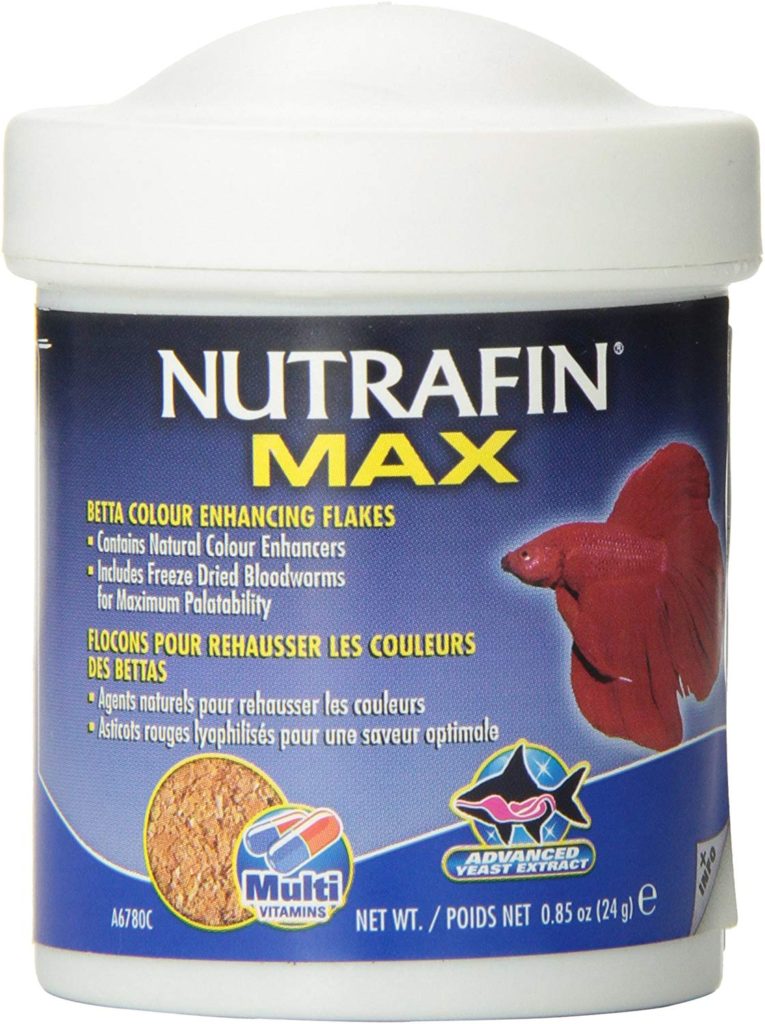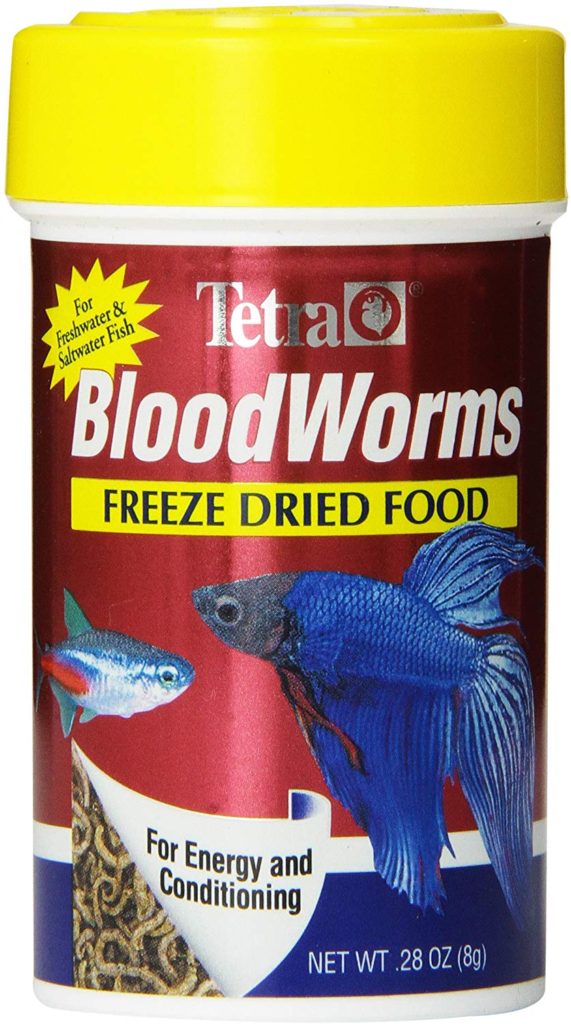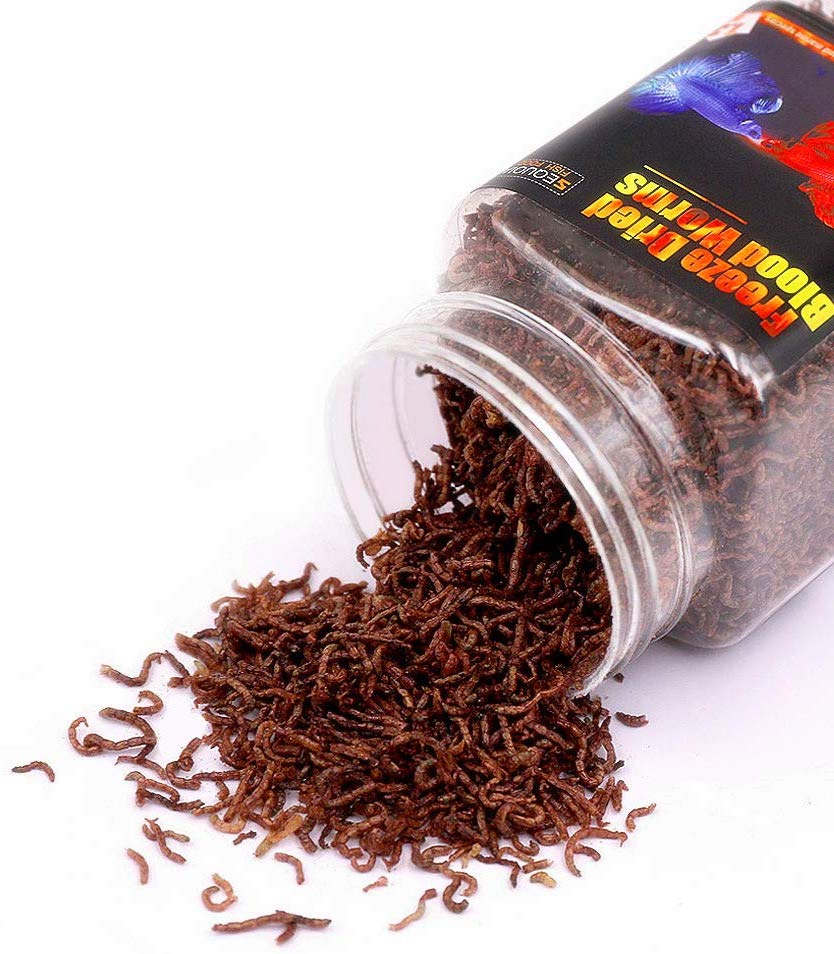Best Betta Food – Feeding Options
Figuring out what to feed your Betta fish can seem complicated, particularly for first time fish keeps. However, it shouldn’t be overwhelming. Below we’ll give you an introduction to the best Betta food and what you may want to feed them.
Betta fish are technically carnivores. They therefore need a high protein diet. Betta fish can feed on a range of food including good quality pellets, flakes and freeze dried food as well as live and frozen foods. A few things to remember:
- Betta fish have small stomachs (around the size of their eye). It is therefore very easy to overfeed them… and they’ll happily overfeed. This does, however, cause them digestive issues.
- Keep the quality of the food high. Skip the foods filled with chemicals and fillers.
- In order to ensure that your Betta fish gets a varied diet it is usually good to mix up their diet. One of our favorite options is high quality pellets as a staple, adding in frozen and live food as treats and as a variation in diet.
Best Betta Fish Food – Options
Betta Fish Pellets
Pellets are perhaps the most widespread fish food used around the world. They have the benefit of being easy to store and use. For Betta fish it is important that you get good quality pellets. Poor quality pellets tend to have a larger percentage of “fillers” – added ingredients that add no nutritional benefit. This decreases the efficiency of your Betta fish feeding.
Low quality pellets with fillers can also cause more serious issues if it causes the pellets to expand once in contact with water. If this is the case, it is easy for your Betta fish to overfeed, causing digestive issues. If this is the case, soak the pellets in water first.
This floating pellet food for Bettas is made by Tetra. It comes in a 1.02 Oz / 29g container. It aims to provide all of the dietary requirements for your Betta fish. It also contains Tetra’s Procare formula when is desired to help support your fish’s immune.
Similar to above, this floating pellet food for Bettas is made by Tetra. It comes in a small 0.15 Oz / 4.5g packet. It aims to provide all of the dietary requirements for your Betta fish. It also contains Tetra’s Procare formula when is desired to help support your fish’s immune.
The Omega One Betta fish food pellets are rich in Omega 3 & 6 fatty acids. The are salmon flavored and naturally insoluble. This means that even if they end up not being eaten they are less likely to cause harm to your tank. Per Omega One they have Min Crude Protein 42% / Min Crude Fat 8% / Max Crude Fiber 2% / Max Moisture 8.5% / Max. Ash 8%
Betta Fish Flakes
Betta fish flakes work have similar components to Betta fish pellets. If you are going to use flakes it is important to ensure:
- That you are purchasing Betta fish flakes. These have a higher protein component that standard fish flakes, which will help to give your carnivorous Betta fish enough protein.
- Monitor your Betta fish eating the flakes. Some Betta fish do not like flakes. Additionally, if flakes are going uneaten (and likely sinking to the bottom of the tank) it is important to remove them before they rot. An aquarium vacuum can work well to ensure that there is not excess foods left at the bottom of your tank.
The Omega One Betta fish food flakes are rich in Omega 3 & 6 fatty acids. The are salmon flavored and naturally insoluble. This means that even if they end up not being eaten they are less likely to cause harm to your tank. Per Omega One they have Min Crude Protein 43% / Min Crude Fat 12% / Max Crude Fiber 2% / Max Moisture 8.5% / Max Ash 8%
The API Betta fish flakes come in a 10 gram container (0.36 Oz.). Per API they are designed to support fish color and provide the key nutrients required by your Betta fish.
The Nutrafin Max flakes are designed to help optimize the color of your Betta fish. The Betta fish food is floating, and formulated to meet the nutritional requirements of your Betta fish. It comes in a 24 gram (0.85 Oz) container.
Freeze Dried Foods
Freeze dried foods are a nice addition to your Betta fish diet. They are a good balance between pellets and live foods. The provide most of the benefits of the live food, without the complications that come with storing and feeding live foods. It is often advisable to soak the freeze dried fish foods before feeding to enable them to return to their original size before they were freeze dried (at which point the moisture was removed).
These freeze dried bloodworms from Tetra make for a great addition to the diet of your Betta fish. They provide a boost of nutrition that is not always available with standard pellets or flakes. Per Tetra there were specially processed to minimize the undesirable items which are found in live bloodworms.
Freeze dried bloodworms from Sequoia are highly rated. They have a high protein content – perfect for your carnivorous Betta fish. These 100% bloodworms have no additives, chemicals or preservatives. They are one of the highest grade of freeze dried bloodworms available on the market today and comes in a 2 Ounce container.
Live Foods
Live foods can include mosquito larvae, brine shrimp and bloodworms. These are best sourced from a local (good quality) pet shop. These foods can add a great variation to your Betta fish diet. They will also benefit from being able to stalk their prey – much like they would do in the wild.
One thing to ensure is that the live food is bacteria free. Go with high quality options from your pet store rather than feeding your Betta fish anything you caught in the wild!
Frozen Foods
Frozen foods can include mosquito larvae, brine shrimp and bloodworms. These are best sourced from a local (good quality) pet shop. These foods can add a great variation to your Betta fish diet, and will help replicate their diet in the wild.
When feeding the frozen foods, remove only what you need from the freezer. You should then defrost the food before feeding.
Best Betta Food – Conclusion
Betta fish enjoy a high protein diet. They are carnivores and can feed on a range of food including good quality pellets, flakes and freeze dried food as well as live and frozen foods. Regardless of the diet composition you choose it is important to ensure that you are feeding your Betta fish the appropriate amount of food, and that it is of high quality.
If your Betta fish is not eating, it is worth checking out our guide on how to identify the problem and fix it.

